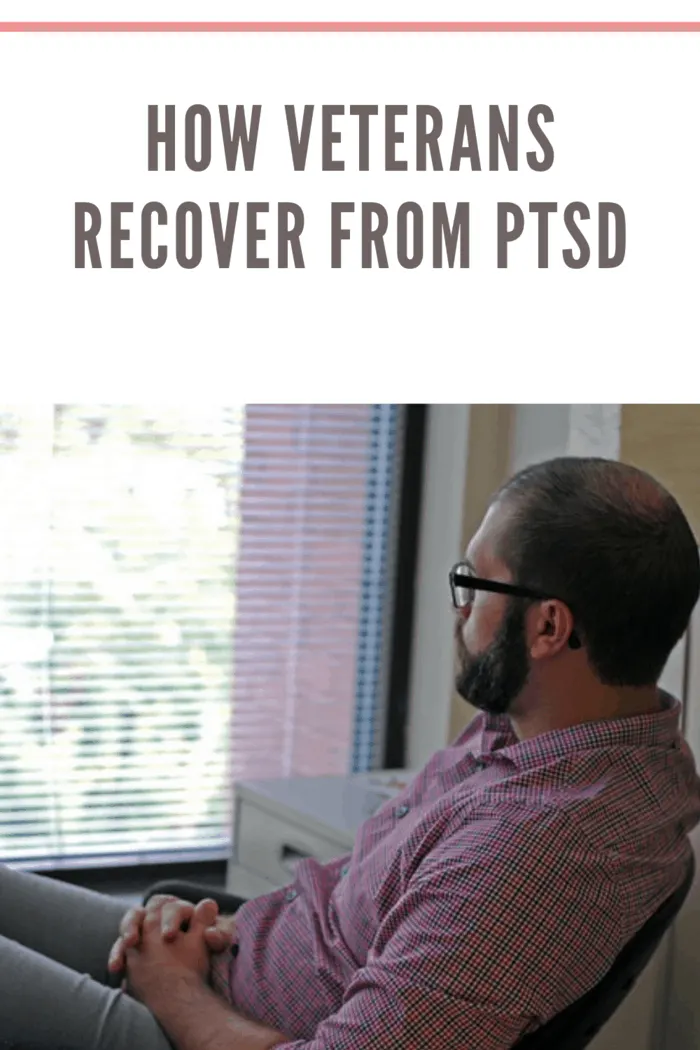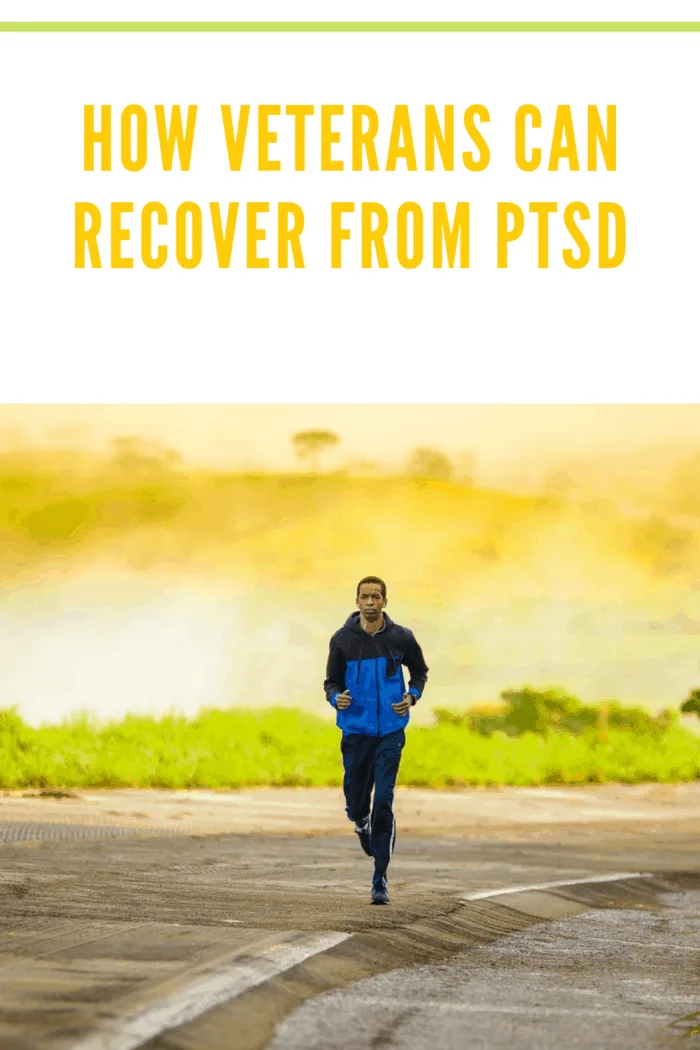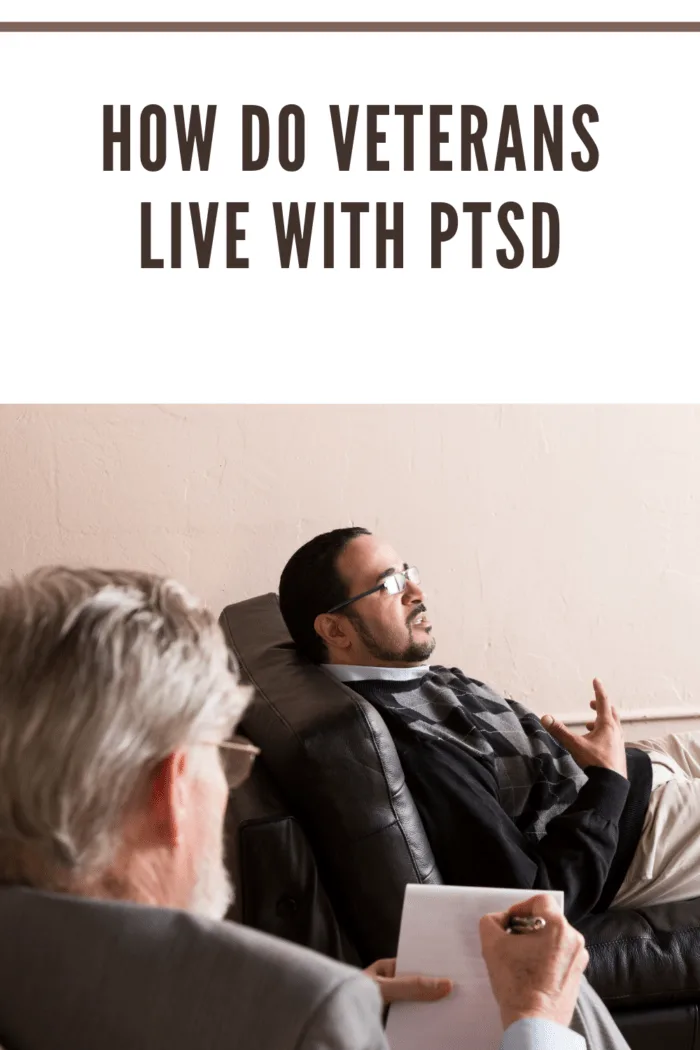More than a decade since the war in the Middle East broke out, post-traumatic stress disorder (PTSD) cases have surged significantly to become one of the leading health concerns among military personnel in the US. These past few years have seen a dramatic increase in the number of veterans from Iraq and Afghanistan diagnosed with PTSD, giving a spotlight to the severity of this condition and highlighting essential questions about how veterans recover from PTSD.
Although the condition can affect everybody—almost eight million American adults are diagnosed with it annually—the problem is more concerning among war veterans. It was observed that this demographic has a higher risk of suffering from PTSD compared to the rest of the population.
Also, these individuals face specific barriers that prevent them from getting access to proper treatment.

These barriers include:
- The requirement to have either an honorable or general discharge to receive medical benefits from the Department of Veterans Affairs (VA)
- Long waiting lists at VA-assigned medical centers
- Social stigma in military communities because of their mental illness
For many veterans, leaving military service means living with symptoms of PTSD.
Nonetheless, if you are one of these individuals, there are some things that you can do to start healing and regaining a normal and healthy life.
How Does PTSD Affect Veterans? Facts and Statistics
The Department of Veterans Affairs has been actively engaged in ways to help war veterans with PTSD.
In fact, it has made varying estimates concerning PTSD prevalence rates among returning service members across different deployments and wars.
According to a study by the National Library of Medicine, around 60,000 veterans from Iraq and Afghanistan (13.5% of the deployed and non-deployed veterans) were diagnosed with PTSD.
However, research by VA places this rate as high as 20-30%.
It claims that 500,000 American soldiers who have been deployed in the past 13 years have been diagnosed with PTSD.
Causes
You might ask, how do veterans living with PTSD develop their condition?
Having experienced or witnessed life-threatening events may cause PTSD, regardless of whether it happened to soldiers, civilians, or the average person.
The VA cites several causes of PTSD, including:
• Combat and other military experiences
• Sexual, emotional and physical assault during childhood and as an adult
• Sudden death or involvement in an accident of a loved one
• Serious accidents
• Natural disasters, like hurricanes and fires
• Terrorist attacks
Symptoms
Symptoms of PTSD usually manifest right after experiencing a traumatic event, but there are cases where they may not appear until several months or years later.
If the symptoms last longer than a month, make you feel significant distress, or affect your work or social life, this might be a sign of PTSD.
There are four main coping mechanisms of trauma, but they may not be the same for each individual.
These symptoms include:
a. Reliving the traumatic event or having intrusive thoughts about it
b. Avoiding places, experiences, or events that remind you of the traumatic event
c. Being unable to calm down and becoming irritable for no specific reason (hypervigilance)
d. Having nightmares, leading to sleep-related problems
Risk factors
Some soldiers don’t develop PTSD, while others do, is still unknown.
But it’s common knowledge that the chances of developing the condition increase with the number of tours and combat missions that a veteran has experienced.
This is not surprising since hyperawareness, hypervigilance, and adrenaline are among the main factors contributing to your survival.
Once these bodily reserves are strained and worn down, dealing with profound stress is no longer possible, and to cope, the body goes into survival mode.
Most veterans experience a weird feeling when they come back home.
Their responses to normal activities become different.
While learning how to move on from these responses won’t happen instantly, you’ll get better in no time if you take one step at a time towards recovery.
Besides that, when you learn how to deal with the stress and experiences of combat, you’ll learn immense life skills to help you conquer PTSD and succeed in life.

How Veterans Can Recover from PTSD
Learning how veterans recover from PTSD can be quite helpful in your recovery.
Therefore, here are some of the steps that you can take today to make the process easier:
Exercise regularly.
Following a regular exercise regimen can be a key to overcoming PTSD. Aside from reducing adrenaline, exercise can trigger the release of endorphins that can improve your mood. Focusing on exercise can help your nervous system recover from trauma and shed off the survival instincts that stem from your internalized stress.
Take measures to control your nerves.
Having PTSD can make you feel extremely vulnerable and helpless. But you must realize that you have more control over your emotional responses than you initially thought. When you feel angry, anxious, depressed, or enraged, doing these things can help you calm down:
Do mindful breathing:
If you want to calm yourself down, you just should take 60 breaths and focus on breathing out.
You can also read about mindful breathing meditation on numerous websites online.
Exercise your sensory input:
Although loud noises, sounds, and certain sensations can take you back to your traumatic experience, it can also be a way to exercise your response and how to calm down quickly.
But everyone responds a bit differently, so you need to find your threshold.
Reconnect with your emotions:
It’s normal if you want to avoid thinking about or reliving your experiences in combat. The only way to heal completely is to accept what happened and recognize that what you feel is natural and valid.
Connect with other people.
Interacting with other people doesn’t mean that you’ll have to talk to them constantly.
It is important for veterans dealing with PTSD to look for a person who is willing to listen without judgment when you share your feelings or just hang out when you don’t feel like opening up.
They can be your significant other, a family member, one of your friends from the service, or even your civilian friends.
Observe a healthy lifestyle.
PTSD symptoms can be difficult for your body to experience daily and can take a toll on your health.
Some individuals may resort to drinking alcohol or taking drugs to deal with these negative bodily reactions.
However, short-term alleviation can cause long-term harm.
These activities worsen PTSD symptoms and your health over time and delay your full recovery.
Here are some ways to protect your body and mind the healthy way:
Relax:
Get a massage, do some meditation, and attend yoga classes to reduce stress and anxiety.
Find safer ways to direct your emotions:
Pound a punching bag, go for a hard run or sing along to loud music to make you feel calmer.
Adopt a healthy diet:
Avoid eating processed, sugary, fried, and refined food items, as they can cause mood swings and energy fluctuations.
Get enough sleep:
Sleep deprivation can lead to feelings of anger and irritability and can cause moodiness.
You should get approximately 7 to 9 hours of sleep each night.
Avoid drinking alcohol, taking drugs, and smoking:
Booze and drugs can be tempting to numb the traumatic thoughts that fill your mind, but they can make the symptoms of PTSD worse.
Face your demons.
Veterans with PTSD have to deal with negative thoughts, flashbacks, and nightmares.
You may experience being back to the frontlines again, but you need to reassure yourself that everything is okay, and this is just your mind playing tricks on you.
You need to remember that it is not happening now.
Deal with your guilt
The feeling of guilt is common in veterans with PTSD, as you may have personally known individuals who have been killed or injured.
Although you may not be able to take it all in when it happens, you will bear the brunt later when you’re back home.
Don’t blame yourself for what happened and think positively if this happens.
Instead of blaming and punishing yourself, you should honor the ones you’ve lost and find ways to keep their memory alive.
Ask help from a professional
Seeking professional help will give you more strength to face what happened and learn to accept it to move on finally.
Therapists or doctors may use these treatments to help you:
Cognitive-behavioral therapy (CBT):
This involves exposing yourself to thoughts and emotions that remind you of the traumatic experience.
Eye movement desensitization and reprocessing (EMDR):
This utilizes hand taps and sounds to help your nervous system move on from the traumatic event.
Prolonged exposure (PE):
This involves talking about traumatic experiences until they’re no longer upsetting.
Medication:
A number of medicines are used to relieve PTSD symptoms, such as antidepressants, anti-anxiety drugs, and prazosin.

Conclusion
When you or someone you know gets diagnosed with PTSD, it can be quite challenging to accept it and find ways to move forward. But inspiring individuals like Greg Washington of Guards Down are doing their part to spread how veterans can best recover from PTSD by adopting a natural, holistic approach to treatment. Support groups, herbal medicine, and culturally-sensitive counseling can definitely help you regain a normal, healthy, and happy life.
If you want to read more about health and wellness, browse our site!
Resources:
https://www.workingthedoors.co.uk/go-to-guides/ptsd-the-definitive-guide/
